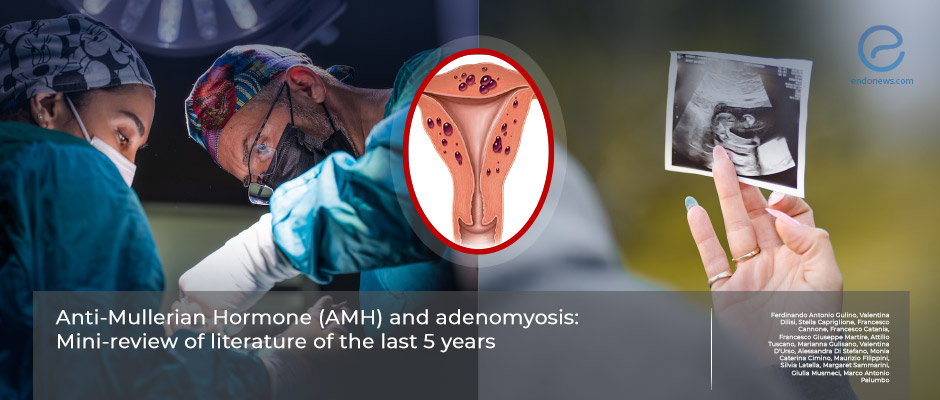Adenomyosis and the anti-mullerian hormone levels
Nov 22, 2022
A mini-review evaluates the status and importance of anti-mullerian hormone levels in adenomyosis patients
Key Points
Highlight:
- The anti-mullerian hormone (AMH) levels were shown to not be affected by surgical intervention on adenomyosis.
- The ovarian function of the patients does not change significantly after having adenomyosis surgery.
Importance
- Anti-mullerian hormone (AMH) is used as the predictor of ovarian reserve.
- Lower AMH levels mean a lower rate of pregnancies making it an essential factor in the fertility status of adenomyosis patients.
What’s done here:
- This is a mini-review study that evaluated the scientific research on adenomyosis in the last 5 years.
- The aim was to identify AMH's prognostic and therapeutic role in patients with adenomyosis.
- A total of 8 studies were reviewed.
Key results:
- The AMH levels were lower in patients with endometriosis compared to women without endometriosis.
- The AMH levels of the patients who underwent adenomyosis surgery were not different before and after the surgery.
- Different surgical techniques did not yield any difference in AMH levels after surgery in patients with adenomyosis.
- The levels did not change in adenomyosis patients that had been treated with high-intensity focused ultrasound either.
- A study demonstrated 15 out of 45 women became pregnant successfully after adenomyoma surgery.
- A strong expression of the AMH receptor in adenomyotic tissues was shown in a study.
Strengths and Limitations
- The originality of the argument in the field of endometriosis constitutes the study's strength.
- The heterogeneity of the results in the scientific works, and the relatively low number of retrieved publications are the limitations.
Lay Summary
The presence of endometrial glands and stroma in the myometrial layer of the uterus is called adenomyosis. It is considered a form of endometriosis and affects up to 35% of women with varying symptomatology, from asymptomatic to subfertility. For a long time, the diagnosis could only be made in the histological sections of the hysterectomy specimens. Nowadays, new technology and advances in radiological techniques may have made it possible to detect it via transvaginal ultrasound and magnetic resonance imaging.
The studies investigating the relationship between adenomyosis and fertility have shown controversial results. These studies have mostly covered the role of Anti-mullerian hormone; an essential biomarker in detecting a woman’s fertility status. In order to evaluate the existing research and highlight the potential prognostic and therapeutic role of AMH in women with adenomyosis, Gulino et al. from Italy conducted a mini-review study which was published in the August 2022 issue of the journal Frontiers in Endocrinology.
A total of 8 studies were taken into consideration which was then differentiated into two subgroups as related to adenomyosis treatment and related AMH receptor in adenomyosis. The AMH levels were shown to be lower in patients with endometriosis compared to healthy women. In addition, the AMH levels in adenomyosis patients that were treated with different approaches were investigated by some researchers. A study comparing two different surgical techniques did not find a significant difference in AMH levels before and after adenomyomectomies in both groups, such as other studies that evaluated the same finding in adenomyosis patients that had been treated with high-intensity focused ultrasound. It was also demonstrated that 15 of 45 women became pregnant successfully after adenomyoma surgery. What is more, a strong expression of the AMH receptor in adenomyotic tissues was shown in a study that made way for the AMH receptor II protein to be considered a therapeutic agent.
The authors discussed that the lower AMH levels detected in patients with endometriosis (and adenomyosis) cause reduced ovarian reserve and less chance of pregnancy. Another point that the authors made was the quality of life of these patients who were most likely under a lot of stress in the process of becoming pregnant. Adenomyosis was found to have a negative impact on fertility after IVF and adverse pregnancy outcomes. Therefore authors state that adenomyosis patients should be offered to counsel before and during their pregnancy period. To conclude, the AMH receptor may be used in the treatment of adenomyosis in the future.
Research Source: https://pubmed.ncbi.nlm.nih.gov/36120472/
adenomyosis anti-mullerian hormone fertility surgery

